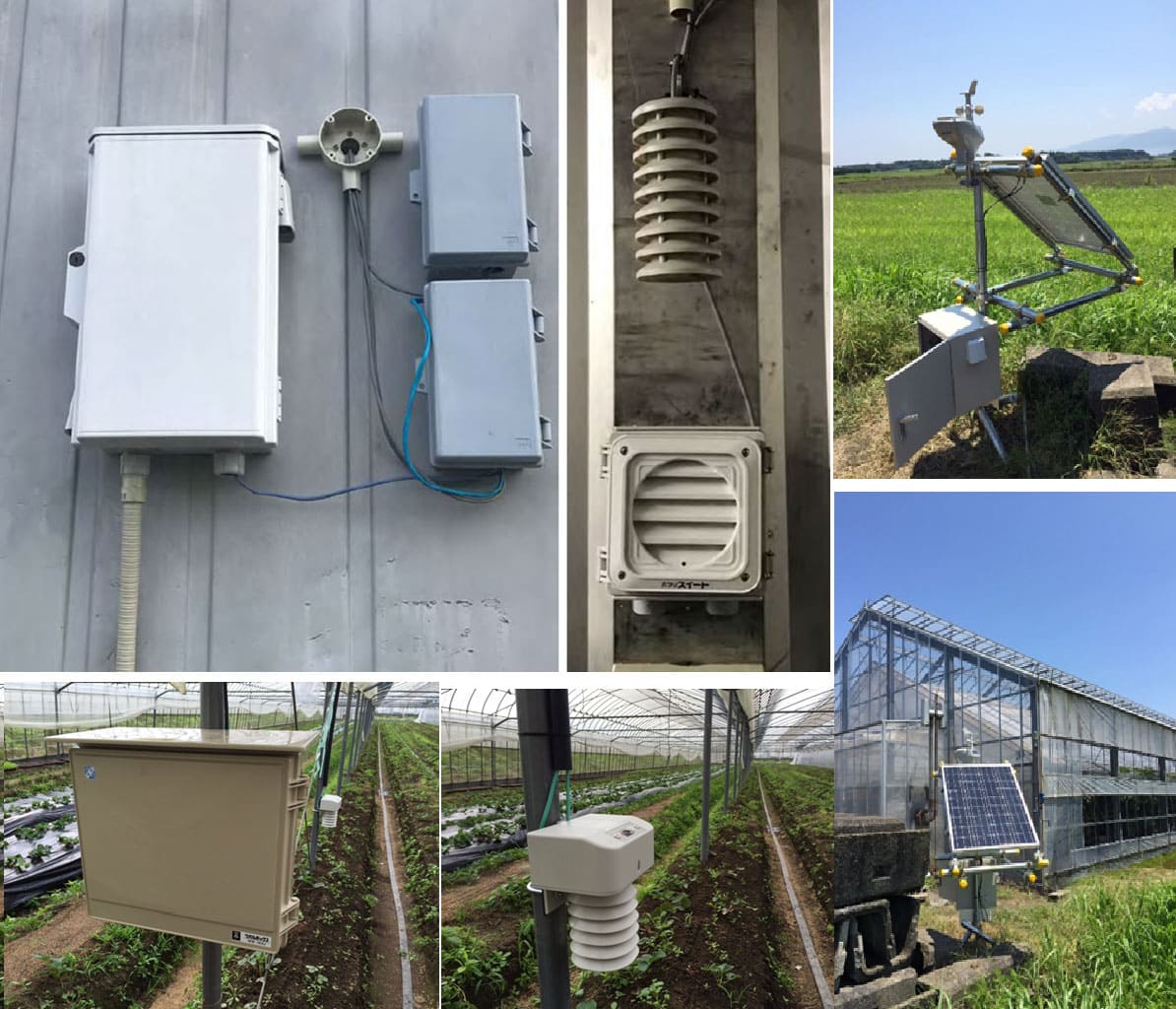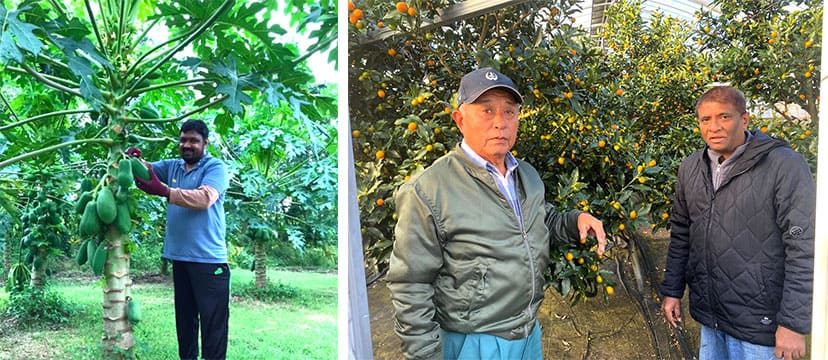Tackling Social Problems in Regional Japan through ICT and Wisdom
Categories:
Overview
Using information and communication technology (ICT) and artificial intelligence (AI) to connect people with one another and with field expertise, and unlock new solutions to address problems surrounding regional agriculture
Japan as a whole is facing issues such as population decline, a low birthrate coupled with an aging population, and resulting shortages of workers and business successors. Many of these issues are overlapping and manifesting concurrently, particularly in the field of regional agriculture, which is also contending with a diverse range of challenges such as the transmission of technical skills, the preservation of local communities, the employment of international workers, and the management of abandoned farmland.
I have lived and conducted research in Japan for roughly 25 years, and maintained an interest in the aforementioned issues during this period. As an IT researcher with agricultural experience in Sri Lanka, my native country, I have engaged in deep exchanges with Japanese farmers on many occasions. Drawing on the insights gained from such experiences, I have continued to research core issues affecting regional agriculture that cannot be resolved through digitalization or ICT alone.
At present, I have commenced practical research for a new project, in which I am harnessing the expertise, technology, and human network cultivated in different fields throughout this research to date. The project, which is based in the Osumi Peninsula of Kagoshima Prefecture, aims to create a new agricultural framework that connects people, communities, agricultural techniques, and field expertise through ICT and AI solutions. It brings together seasoned farmers, young overseas personnel from Sri Lanka, and Generation Z youth from the local community.
In this new project, ICT is utilized as a tool to facilitate these connections. The tacit knowledge of seasoned farmers is carefully digitalized to enable its transmission, thereby transcending the boundaries of language and culture. The insights of overseas experts are also shared in real time to support new ventures. The goal is to nurture international and young talent, and provide an environment where these human resources can engage in agriculture with confidence. ICT solutions tailored to such settings are being developed.
In this environment, outstanding farmers in their late 70s are welcoming international human resources in their twenties as new apprentices, and transmitting their techniques and field expertise. Furthermore, the nurtured young talent put their skills into practice at new farmlands that were turned from abandoned fields. Such developments are beginning to unfold, accompanied by a tangible sense of progress.
This initiative has already garnered the attention of other regions, and is beginning to take root in new areas. Going forward, the potential of this project will continue to expand as a new model for regional revitalization that shines a light on various social problems affecting Japan’s regional areas.

Sensor-based and AI solutions support precision agriculture. They are utilized to monitor cultivation environments, and the resulting data is analyzed while cross-referencing with practical insights accumulated by seasoned farmers. In this way, the tacit knowledge of such experts is digitalized, and transmitted to the younger generation, thereby transcending the boundaries of language and culture.
Novelty/Originality
Developing a new methodology for regional revitalization by fusing the latest technologies with field expertise
The originality of this research project not only lies in the research, development, or implementation of ICT solutions, but also stems from its comprehensive approach to solving various social issues manifesting in regional areas and striving to achieve revitalization and sustainable development while aligning closely with the perspectives of local residents.
To this end, ICT solutions are introduced with a deep understanding of on-the-ground realities. For example, IoT-based sensor technology is utilized to monitor cultivation environments, serving as a complement to the keen observations of seasoned farmers. The resulting data is analyzed while cross-referencing with practical insights accumulated by such experts. Furthermore, tacit knowledge accumulated over years of experience through analysis of agricultural journals and observational data is codified and transformed into transferable knowledge that transcends linguistic and cultural barriers. In addition, I provide technological support through the establishment of an expert network, taking advantage of crowdsourcing. This has enabled the incorporation of insights from international agricultural experts into the cultivation of new crops.
On the human resources training front, I am also developing unique initiatives. I utilize ICT and AI solutions in job placement support for, and training of, international talent in Japan. As for Japanese language education, which is a crucial factor for long-term settlement and retention, I have jointly developed a Japanese language education platform with a venture company. I have already attracted tens of thousands of users, and target further growth in the future. I aim to have the platform serve not only as a tool for language learning, but also as a space to deepen understanding of Japan’s farming culture and techniques.
Another distinctive feature of the research project is that, as the principal investigator, I have a broad perspective on Asia and am proactive in my research. Rather than addressing Japan’s regional and agricultural challenges from a solely domestic perspective, the goal is to provide solutions through exchanges of human resources, technologies, and agricultural products across various Asian countries. This illustrates the breadth and reach of the project.

I have jointly developed the Japanese language education platform, WoW Academy, with a venture company. Japanese language education is critical to ensure the long-term settlement and retention of international human resources, and we aim to provide education that is tailored to each international worker.
Principal Investigator

Ritsumeikan Asia Pacific University
You can view and print a summary of this page's contents in a single PDF page here.







I came to Japan roughly 25 years ago. Ever since, I have worked to develop frameworks to solve various social issues—particularly, challenges related to work and society—through ICT solutions and other means.
Prompted by exchanges with farmers while living in Japan, and based on my personal experience in agricultural management, I am pursuing new practical research in the field of agriculture, harnessing the research outcomes, technical expertise, and professional connections I have accumulated to date.
While Japan’s regional areas face many challenges, they also offer great potential. My hope is that the practical research we are engaged in can help unlock that potential.
Ritsumeikan Asia Pacific University Faculty Information
researchmap